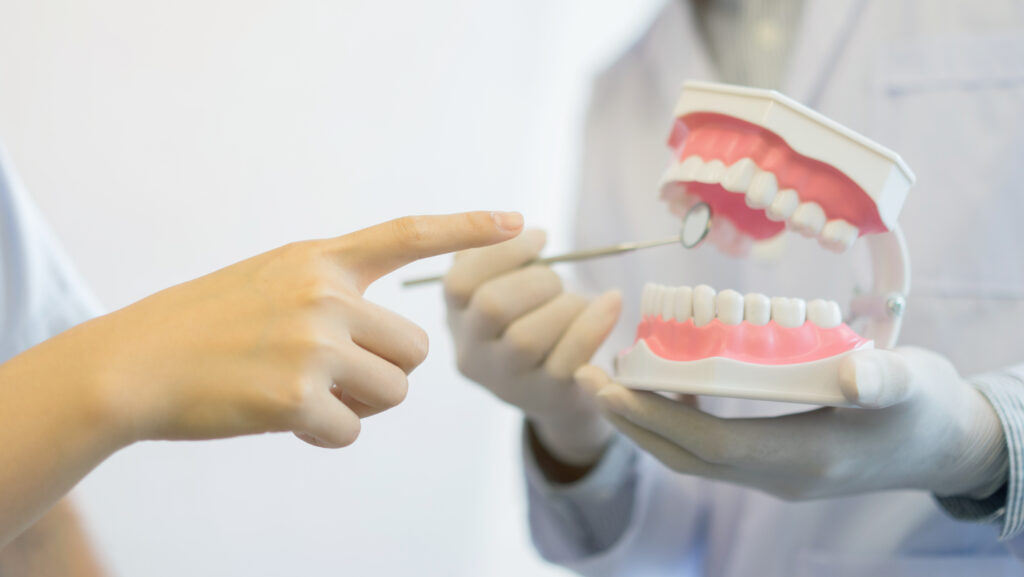Oral cancer is amongst the top three prevalent cancers. An understanding of the most prevalent risk factors associated with oral cancer can assist you in staying safe from this potentially fatal disease. As with most life-threatening conditions, prevention with proper oral health care is preferable to treatment.
Your dentist is your best friend
Oral health exam
An oral health exam can help reduce the risk of oral cancer in several ways. During an oral exam, a dentist can identify any suspicious lesions or growths in the mouth or throat that may be cancerous or pre-cancerous. If detected on time, oral cancer can be successfully treated.
In addition to identifying potential cancerous growths, a dental checkup can also help to detect other risk factors. By identifying these risk factors, healthcare professionals can provide patients with information, as well as resources, to help them quit smoking. They can also guide in terms of reducing their alcohol consumption, both of which can significantly reduce the risk of developing oral cancer.
Dental cleaning
A dental cleaning can promote healthy oral hygiene, which can reduce the risk of oral cancer further. Good oral health care practices can help to prevent the development of gum disease. It also helps identify other oral infections linked with increased risks of oral cancer.
Overall, regular dental cleaning can help to identify potential risk factors for oral cancer. It even removes harmful bacteria and promotes good oral healthcare practices, all of which can significantly reduce the risk of developing oral cancer.
Discuss concerns (symptoms) immediately with your dentist and health physician
It’s important to note that not all cases of oral cancer present with symptoms, which is why regular oral exams are essential for early detection. Suppose you experience any symptoms or notice any changes in your mouth or throat. In that case, it’s important to book a dental checkup as soon as possible.
Lips need sun protection too!
Protecting your lips from the sun can help prevent oral cancer because the lips are a common site for oral cancer to develop. The lips are a type of skin, and just like other areas of skin on the body, they can be damaged by prolonged exposure to the sun’s ultraviolet (UV) rays. UV radiation can cause changes to the DNA in skin cells, which can lead to the development of cancerous cells.
Using a lip balm or lipstick that contains a powerful SPF30 sunscreen is advisable. This can significantly reduce the risk of developing oral cancer on the lips.
Break the tobacco habit and reduce your alcohol intake
Reducing tobacco and alcohol intake can help prevent oral cancer by lowering exposure to harmful chemicals, promoting the body’s natural defences, and allowing the body to heal itself. Tobacco and alcohol use is some of the most significant risk factors for oral cancer, and even reducing this intake can have significant health benefits. Quitting alcohol and tobacco use altogether is the most important and effective way to reduce the risk of developing oral cancer.
Be aware of HPV
Oral cancer can also be caused by sexual transmission in addition to lifestyle habits. HPV is a sexually transmitted infection. It can be transmitted through unprotected oral sex or the exchange of reproductive fluids, leading to oral cancer. HPV-16 is the subtype responsible for most cases of oral cancer and is the leading cause of oropharyngeal cancers.
Both men and women are affected equally by HPV-related oral cancer. Although various oral cancer screening devices and tests are available, none of them can presently detect HPV-positive oral and oropharyngeal cancers early.
Oral self-exams can help detect and address potential threats at an early stage. Along with regular dental cleaning, thoroughly examine the back and sides of your tongue. If you notice any unusual features, such as tender areas, lumps, bumps, or discoloured patches, promptly schedule a dental checkup appointment.


0 comments on “Tips On Reducing The Risk Of Oral Cancer”